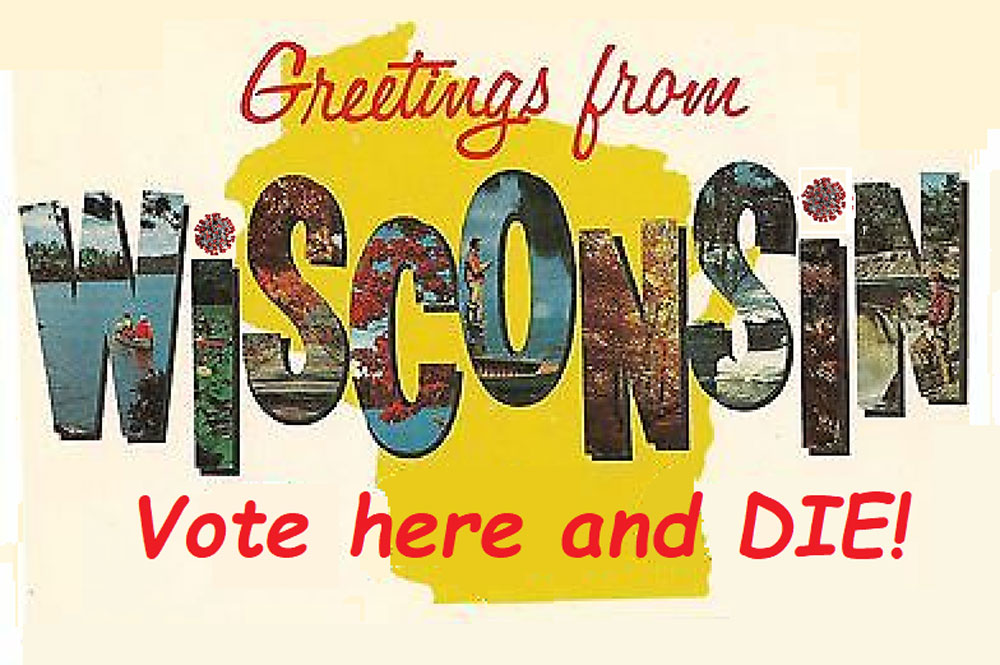
June 30, 2020; Milwaukee Journal Sentinel
Earlier this week, a three-judge panel of the federal appeals court in Chicago, in a unanimous decision, reinstated limits on early voting and a requirement that voters be Wisconsin residents for at least a month before an election. The judges also reinstated a state ban on most voters from having absentee ballots emailed or faxed to them and told a lower court to continue to tweak the system the state uses to provide voting credentials to those who have the most difficulty getting photo IDs, reports Patrick Marley in the Milwaukee Journal Sentinel.
These rules had been designed by a Republican-controlled state legislature and signed into law by Scott Walker, the state’s former Republican governor. When these rules were initially challenged in 2017 because of their discriminatory impact, two separate federal district court judges agreed. Back then, the lower court rulings had invalidated the rules now upheld by the appeals courts, on grounds that the voting rules made obtaining absentee ballots harder, restricted the number of early voting days that could be provided, and specifically kept Black and brown voters away from the ballot box.
Judge Frank Easterbrook, writing for his unanimous court, was clear that restrictions with partisan aims are allowable, and if those restrictions happen to suppress voting by people of color, that was not of the court’s concern. As he wrote:
This record does not support a conclusion that the legislators who voted for the contested statutes cared about race; they cared about voters’ political preferences…If one party can make changes that it believes help its candidates, the other can restore the original rules or revise the new ones.
The direct impact of the court’s decision will be felt this November in Wisconsin, a critical battleground state. If the election looks the last one, a small number of suppressed votes could be enough to determine who next sits in the White House. In 2016, when the ballots of almost three million Wisconsin voters were counted, Donald Trump won Wisconsin’s 10 electoral votes with a margin of fewer than 25,000 votes.
Sign up for our free newsletters
Subscribe to NPQ's newsletters to have our top stories delivered directly to your inbox.
By signing up, you agree to our privacy policy and terms of use, and to receive messages from NPQ and our partners.
What’s more, the message that election decisions motivated by partisan interests are not just acceptable but sufficient to overcome any incidental racially disparate impact carries an even wider meaning at a time when states are challenged to balance the safety of their voters and making it possible for all voters to vote. The successes Kentucky had in its recent primary came from both parties coming together to place the “need for a fair election over political agendas.”
Wisconsin’s primary election back in April didn’t go as well. As noted by the New York Times, “Wisconsin’s leaders, Gov. Tony Evers, a Democrat, and the Republicans in charge of state legislative majorities…could not come to an agreement on how to alter the election.” As described by the Brennan Center for Social Justice:
The weeks leading up to the Wisconsin primary election on April 7th were tumultuous. On March 27th, Democratic Gov. Tony Evers called for every voter in the state to be sent an absentee ballot, but the Republican-controlled legislature rejected the idea. The weekend before the election, Evers called an emergency session of the legislature, hoping to postpone the election; once again, his efforts were stymied. Evers was also blocked in the courts; the day before the election was to take place, he issued an executive order moving it to June 9th, but the state supreme court struck it down.
Blocked by partisan interests outweighing a commitment to all voters, Wisconsin’s primary election this spring was marked with problems.
Every state must conduct November elections during the pandemic. Fairness would call for changes, like those made in Kentucky, to maximize voter turnout. But, if there is no reason, as the Court ruled in the Wisconsin case, to not seize partisan advantage, there may be no motivation to be fair. Hearing Andrew Hitt, chairman of the Wisconsin Republican Party, describe his state’s electoral system, knowing that several courts have said it shuts out voters of color, as “ensuring that Wisconsinites have equal access to the polls regardless of where they live,” is highly disturbing.
John Nichols of The Nation captures the larger meaning of the appellate court’s message: “Right-wing judicial activists just gave their Republican allies in Wisconsin’s legislature a green light to suppress votes. If there is a COVID-19 surge, the court’s decision will make voting more dangerous.”—Martin Levine













